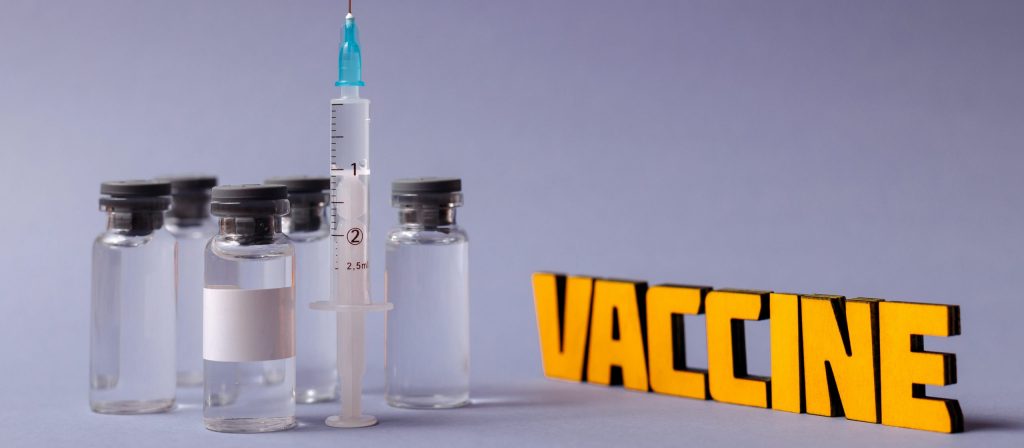We know the Centers for Disease Control and Prevention (CDC) recommends an adult immunization schedule based upon age (18 and under, adults). However, we also know that medical conditions also play a huge role in which vaccines patients should receive.
In this blog, I’ll review the CDC’s recommended adult immunization schedule by medical condition and other indications. Below are some disease states common among our patient population:
Diabetes
This medical condition is extremely prevalent in the U.S. population, particularly adults. The CDC reports that, depending on age bracket, of the 34.2 million people with diabetes — 10.5 of the nation’s population (11% for men, 9.5% for women) — 31% were aged 18 years or older, rising to 21.4% for those aged 65 and up. 90 to 95% of diabetics have type 2 diabetes, leaving only 5% with type 1 (aka “juvenile” diabetes). So this is a serious and widespread medical condition rife with health complications.
Recommended vaccination for adults who meet age requirement, lack documentation of vaccination or lack evidence of past infection includes:
- Influenza inactivated (IIV) or Influenza recombinant (RIV4), 1 dose annually
- Tetanus, diphtheria, pertussis (Tdap or Td), 1 dose Tdap, then Td or Tdap booster every 10 years
- Measles, mumps, rubella (MMR), 1 or 2 doses depending on indication
- Varicella (VAR), 2 doses
- Zoster recombinant (RZV), 2 doses at age ≥50 years
- Human papillomavirus (HPV), 2 or 3 doses through age 26 tears depending on age at initial vaccination or condition
- Pneumococcal polysaccharide (PPSV23), 1, 2, or 3 doses depending on age and indication
- Hepatitis B (HepB), <60 years
Recommended vaccination for adults with an additional risk factor or another indication:
- Pneumococcal conjugate (PCV13), 1 dose
- Hepatitis A (HepA), 2 or 3 doses depending on vaccine
- Meningococcal A, C, W, Y (MenACWY), 1 or 2 doses depending on indication
- Meningococcal B (MenB), 2 or 3 doses depending on vaccine and indication
- Haemophilus influenzae type b (Hib), 1 dose
Precaution — Vaccination might be indicated if benefit of protection outweighs risk of adverse reaction:
- Influenza live attenuated (LAIV4)
Heart or lung disease, alcoholism
Heart disease is the leading cause of death for both men and women, across most racial and ethnic groups, causing 1 in 4 deaths. Lumping all types of lung diseases together, they’re the #3 killer. And excessive consumption of alcohol — alcoholism — is responsible for more than 95,000 U.S. deaths each year…often contributing to heart disease, liver and kidney disease and various types of cancer. It’s the leading cause of preventable death in the U.S., also shortening the lifespan by an average of almost 29 years. So those critical health factors certainly must be taken into account when considering vaccines, any other medical treatment or potential side effects.
Recommended vaccination for adults who meet age requirement, lack documentation of vaccination, or lack evidence of past infection:
- Influenza IIV or RIV4, 1 dose annually
- Tdap or Td, 1 dose Tdap, then Td or Tdap booster every 10 years
- MMR, 1 or 2 doses depending on indication
- VAR, 2 doses
- RZV, 2 doses at age ≥50 years
- HPV, 2 or 3 doses through age 26 years, depending on age at initial vaccination or condition
- PPSV23, 1, 2, or 3 doses depending on age and indication
Recommended vaccination for adults with an additional risk factor or another indication:
- PCV13, 1 dose
- HepA, 2 or 3 doses depending on vaccine
- HepB, <60 years
- MenACWY, 1 or 2 doses depending on indication
- MenB, 2 or 3 doses depending on vaccine and indication
- Hib, 1 dose
Precaution — Vaccination might be indicated if benefit of protection outweighs risk of adverse reaction:
- Influenza LAIV4
Chronic liver disease
Chronic liver disease and cirrhosis in the U.S. cause 13.5% of deaths per 100,000 population, like other diseases impacting both the patient and their families in so many ways.
Recommended vaccination for adults who meet age requirement, lack documentation of vaccination, or lack evidence of past infection:
- IIV or RIV4, 1 dose annually
- Tdap or Td, 1 dose Tdap, then Td or Tdap booster every 10 years
- MMR, 1 or 2 doses depending on indication
- VAR, 2 doses
- RZV, 2 doses at age ≥50 years
- HPV, 2 or 3 doses through age 26 tears depending on age at initial vaccination or condition
- PPSV23, 1, 2, or 3 doses depending on age and indication
- HepA, 2 or 3 doses depending on vaccine
- HepB, <60 years
Recommended vaccination for adults with an additional risk factor or another indication:
- MenACWY, 1 or 2 doses depending on indication
- MenB, 2 or 3 doses depending on vaccine and indication
- Hib, 1 dose
End-stage renal disease (ESRD) or on hemodialysis
According to the CDC’s Chronic Kidney Disease Surveillance System, the incidence of ESRD varies widely across the states, from highs in the District of Columbia, Mississippi with values of ~400 per million to lows of less than 200 per million in New Hampshire, Vermont and Alaska. The number of U.S. patients on dialysis continues to show a disturbing and continuous rise from 1991 to 2016, with 493,550 patients by the end of that period.
Recommended vaccination for adults who meet age requirement, lack documentation of vaccination or lack evidence of past infection:
- IIV or RIV4, 1 dose annually
- Tdap or Td, 1 dose Tdap, then Td or Tdap booster every 10 years
- MMR, 1 or 2 doses depending on indication
- VAR, 2 doses
- RZV, 2 doses at age ≥50 years
- HPV, 2 or 3 doses through age 26 tears depending on age at initial vaccination or condition
- PCV13, 1 dose
- PPSV23, 1, 2, or 3 doses depending on age and indication
- HepB, <60 years
Recommended vaccination for adults with an additional risk factor or another indication:
- HepA, 2 or 3 doses depending on vaccine
- MenACWY, 1 or 2 doses depending on indication
- MenB, 2 or 3 doses depending on vaccine and indication
- Hib, 1 dose
Immuno-compromised (excluding asymptomatic HIV infection)
Increasing use of immunosuppressive biologic therapies poses a challenge for infectious diseases, the CDC reports. Immuno-compromised patients have a high risk for influenza complications and an impaired immune response to vaccines. Though it is still relatively early to determine the full effects of COVID-19 on immuno-compromised patients, it is reasonable to assume they will be more greatly (and potentially gravely) affected by the pandemic as well.
Recommended vaccination for adults who meet age requirement, lack documentation of vaccination or lack evidence of past infection:
- IIV or RIV4, 1 dose annually
- Tdap or Td, 1 dose Tdap, then Td or Tdap booster every 10 years
- HPV, 3 doses through age 26 years
- PCV13, 1 dose
- PPSV23, 1, 2, or 3 doses depending on age and indication
- Hib, 3 doses HSCT recipients only
Recommended vaccination for adults with an additional risk factor or another indication:
- HepA, 2 or 3 doses depending on vaccine
- MenACWY, 1 or 2 doses depending on indication
- MenB, 2 or 3 doses depending on vaccine and indication
Not recommended/contraindicated — Vaccine should not be administered:
- LAIV4
- MMR
- VAR
Full CDC vaccination information for adults based on medical condition and other indications can be found here.
Determining the best course of vaccinations based on condition and age
Knowing which vaccines a patient should receive by medical condition as well as age is one way our clinical pharmacists live the RxLive value of initiative. We work diligently to stay up-to-date on the best course of care for our patients. I hope you’ve found the information here and the links of value in caring for your patients. Let us know how we can help.




